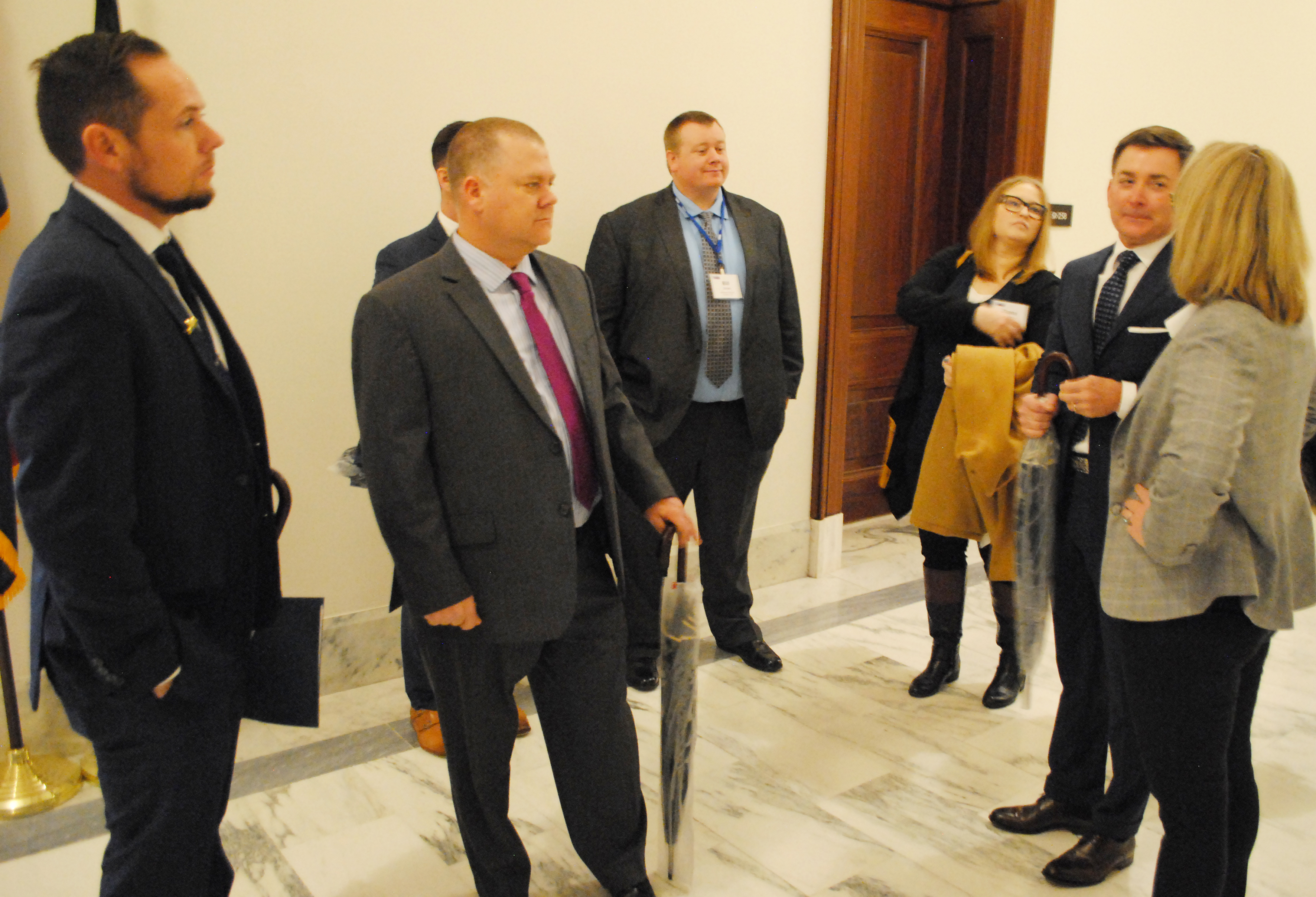 Zach Worrell (far left) joins the Missouri delegation on a Hill visit
Zach Worrell (far left) joins the Missouri delegation on a Hill visit
Mar 31, 2020
By Zach Worrell
Zach and his fellow 2018-20 Rice Leadership classmates (Brad Doyle, Adam Famoso, Brian McKenzie, Scott Savage, Matthew Sligar, and Zach Urrutia) graduated from the program in February and immediately went to work advocating for the U.S. rice industry in Washington, DC.
RIVES, MO -- Uncomfortable suits, ties, and politicians were the only thing that came to mind when I thought about Washington DC prior to our last session of the Rice Leadership Program. While there was plenty of all those things, there was also so much more. Most of my classmates had already been to Washington many times, but this was my first trip there, and I feel fortunate to have had the structure and guidance provided by USA Rice during my visit.
Our first stop was at the U.S. Department of Agriculture (USDA) which is situated near the famous National Mall that runs from the U.S. Capitol to the Lincoln Memorial. The meeting there was incredibly informative and made me realize the importance of responding to USDA surveys. I know I have often brushed off these surveys in the past, but after talking with employees there I can see how important they are. While on the farm we are so distanced from anyone else, we tend to think of ourselves as individuals and only make decisions at the individual level. Seeing how the survey information is utilized by various government agencies to create effective farm policy, I realize I need to broaden my thinking about farm data and how my input contributes to its accuracy.
Another thing I will admit to is having preconceived notions about what someone working in Washington DC could possibly know about rice. It turns out, they know quite a bit! The employees at USDA exhibited a great deal of knowledge specifically about the rice industry. I was interested in their reports on emerging international markets and demand for U.S. rice. The USDA visit gave me an entirely new outlook on the role our government takes in maintaining a safe, reliable, and efficient food supply for our country, as well as their role in expanding and maintaining our export markets.
Another government agency on our agenda was the Environmental Protection Agency (EPA). Our meeting there was a chance for me to equate friendly faces with an organization that not everyone in our industry views positively. The EPA staff was informed, knowledgeable, and attentive to new ideas and questions put forward by our class. I left there with a completely different view of the organization, as well as an appreciation for the neutrality they demonstrate while being held accountable by the public and at the same time maintaining guidelines and practices that allow agricultural producers to remain competitive with the rest of the world.
A big part of any trip to Washington is time spent on “The Hill,” which is how everyone there refers to The Capitol and the Senate and House office buildings that surround it. I wasn’t sure what to expect walking those hallowed halls, but it turned out to be one of my favorite parts of our itinerary. Talking with my elected leaders about problems and opportunities facing the rice industry was not as formal as I imagined, and after this initial visit I feel confident in my ability to engage in working relationships with everyone I met.
An unexpected benefit of Hill visits was the conversation among the group I was assigned to; I learned a lot about my fellow Missouri farmers and industry-related allies as we traveled from office to office. Any skepticism I had about the purpose and effectiveness of these visits was completely unwarranted, and I now look forward to taking the concerns of my local agricultural community to The Hill in the future.
The USA Rice Leadership experience was like nothing I have ever done before. The multi-pronged approach of looking at the many different moving parts of the rice industry has changed my view. Where I once saw myself as an individual rice farmer in the bootheel of Missouri, I now feel connected to an important industry that feeds the world a safe, healthy product. I am forever grateful to the sponsors of Rice Leadership Program, and I look forward to contributing to its continued success.